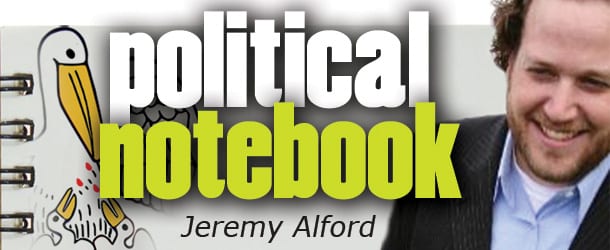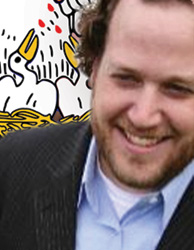Senate Health and Welfare Chairman Fred Mills said he and his committee are pushing state officials to make a decision soon about how to move forward with Louisiana’s massive Medicaid processing contract. “We want a decision by September — not something at the last minute in December,” said Mills, R-Parks.
Right now, Molina Information Systems has a $46 million contract to process the invoices for Medicaid patients. This processing is how participating doctors, hospitals and other providers get paid.
The contract ends on Dec. 31 and was last extended for one year in December, 2015. At the time, lawmakers on the health and welfare committees complained that it was unfair to ask them to make such a costly decision just a couple of weeks before a contract expired.
The state had hired the Maryland-based CNSI to take over the job, but former Gov. Bobby Jindal canceled that contract due to various concerns. CNSI’s wrongful termination lawsuit was settled recently for an undisclosed amount.
With the state overseeing its Medicaid expansion, and the processing arm likely to grow in size, Mills said this should be a top priority for the Louisiana Dept. of Health. “This is a pretty big fiscal issue. We need to act on this quickly.”
Report Shows Conservative Leanings
The Louisiana Family Forum, the state’s leading faith-based advocacy group, has released its legislative scorecard covering this year’s string of regular and special sessions.
It’s the first scorecard that assesses actions from this new term of the Louisiana Legislature. More than anything else, the scores paint a picture of a state Senate that is slowly growing more conservative.
In terms of absolute support, roughly the same number of lawmakers from both chambers scored 100 percent with LFF’s legislative priorities: 16 this year compared to 17 last year.
The big difference is found in the next tier, where there are considerably more lawmakers — about double the number — voting with LFF 80 to 99 percent of the time. In 2015, there were 26 lawmakers who fell into this category. This year, there are 51.
The number of “Life and Liberty Awards,” given to lawmakers who sponsor key bills, also increased, from seven to 10.
The Senate, though, shows the biggest differences. There was only one senator who received a “Life and Liberty Award” last year, compared with four this year. In addition, the number of senators voting with LFF 80 percent to 99 percent of the time shot up from three to 11.
Looking ahead to 2017, LFF President Gene Mills said it’s still early, but his group’s developing issues agenda includes criminal justice reform, a “saner” school bathroom policy and end-of-life proposals.
Qualifying Looks Different
In addition to the new law that pushes qualifying earlier into the summer, there are a few reasons the sign-up period for the fall ballot last month looked remarkably different from the qualifying periods of previous years.
There were 18 races in which no one qualified. These were mostly for small offices, like mayors and chiefs of police of villages.
But there were also 176 individuals who were elected unopposed. It’s an improvement, in terms of competition, over the 2015 qualifying period, when 44 percent of the 1,150 elections scheduled drew only one candidate each.
Louisiana Super PACs Slow To Take Off
A few of the home-brewed super PACs created in Louisiana to support candidates in the fall U.S. Senate race experienced a very bumpy second quarter of fundraising this year.
That may allow other super PACs backed by national organizations from outside of Louisiana to steal some of the political thunder in the coming months.
Super PACs are a special breed of political action committees that are allowed to raise and spend unlimited amounts of money, thanks to a U.S. Supreme Court decision. They played a critical role in the 2015 governor’s race, and are back again to make what is so far a questionable impact.
In the race to replace U.S. Sen. David Vitter, the senior senator’s top political aide has been hired by a Florida-based super PAC supporting Treasurer John Kennedy’s bid. Kyle Ruckert, Vitter’s former chief of staff and campaign manager, will be leading the Louisiana arm of ESAFund’s efforts.
Kennedy has transferred $2 million from his state campaign account, which cannot be used directly on a federal race, to ESAFund’s PAC — and he has another $800,000 ready to go as needed. ESAFund, though, will likewise bring its own resources to the table in Louisiana to support Kennedy.
ESAFund is filling a vacuum left by the Make Louisiana Proud PAC, which was being run by a former Kennedy advisor inside the state and was shuttered last month. But before that happened, Make Louisiana Proud transferred its remaining cash and a batch of in-kind services to ESAFund. These amounted to nearly $120,000.
On the Democratic side, the in-state Defend Louisiana PAC raised and held onto $54,650 in the second quarter. It is advocating for Public Service Commissioner Foster Campbell.
The name of the pro-Campbell super PAC — Defend Louisiana — has caught the attention of District Court Judge Jeff Thompson. As a former state representative in 2013, he established Defend Louisiana Inc., a pro-gun nonprofit. He said he wants to make sure there aren’t any issues with the duplication. “I’m looking into it to make sure we’re all using the name appropriately,” he said in a recent interview.
The Better Louisiana PAC, which was formed to support Congressman John Fleming, has just $63,600 in the bank. It has benefitted from a single donation of $100,000 from Morris & Dixon in Shreveport, and is making consulting payments to Long Nyquist in Pennsylvania.
The bigger player in the Fleming tent may end up being the Club For Growth’s super PAC, which has already endorsed Fleming. The D.C.-based PAC is also actively attacking Congressman Charles Boustany via media buys.
Warrior PAC, which is being run out of California, is backing retired Air Force Col. Rob Maness. It has raised $10,000 from Bo Reily of the William B. Reily Co. in New Orleans, and has roughly that same amount in the bank. PAC director Robert San Luis said via email that Reily has also paid for polling.
Back inside the state, the Louisiana Prosperity Fund, which has a Lafayette base of operations, is trying to offer support to Boustany. It has $98,000 in cash on hand and raised $75,000 from April through June, mostly from the Acadiana area.
The numbers for the localized super PACs, overall, are a ways off from what was seen with the competitive super PACS during last year’s race for governor in Louisiana and from what super PACs in other U.S. Senate races are bringing in.
Super PACs can spend money to support candidates; but those candidates can’t coordinate directly with the super PACs backing them in regard to strategy or spending on media.
Will Democrats Endorse?
While most of the top-tier candidates in the U.S. Senate race are hoping super PACs come to their rescue, if necessary, during the current election cycle, the leading Democratic contenders are also wondering if the state party will come through with a unified endorsement.
Party leaders say an endorsement from the Democratic State Central Committee seems unlikely any time soon. But that’s not stopping the top three contenders — Public Service Commissioner Foster Campbell, Denham Springs attorney Caroline Fayard and Acadiana oil executive Joshua Pellerin — from reaching out to DSCC members.
Stephen Handwerk, the party’s executive director, said in an interview recently that he hadn’t seen any movement one way or the other. He added that it’s ultimately up to the members of the DSCC.
The push for an endorsement has high-profile players in different corners — with Gov. John Bel Edwards supporting Campbell and Fayard’s family, leveraging a lifetime of financial support for Democrats. It’s unknown who might be able to broker such an endorsement with these personalities involved.
The party, though, may want the DSCC to steer clear of a vote. Coordinated campaigns bring in money, and it may prefer three candidates with cash to two candidates who are completely locked out. This is especially true given the lack of attention from the national level.
“There is certainly a role the state party plays in this,” Handwerk said. “But do the national folks get involved and play a role here? Certainly that is something the chairwoman, myself and the campaigns are making the case for: that Louisiana should be in play this year. So far we’re not seeing any movement.”
For more Louisiana political news, visit www.LaPolitics.com or follow Jeremy Alford on Twitter @LaPoliticsNow.














Comments are closed.